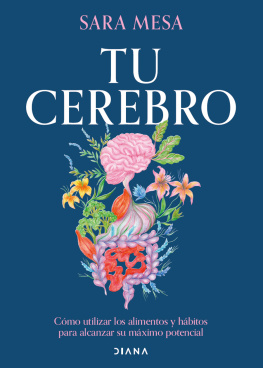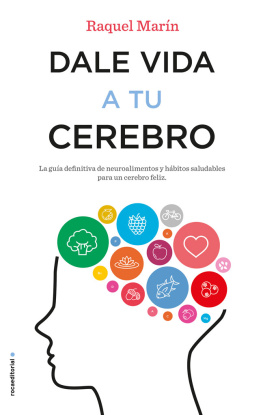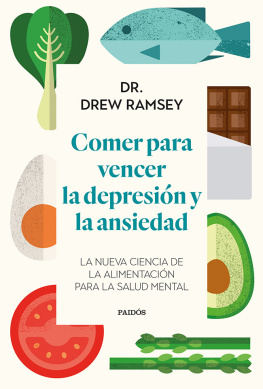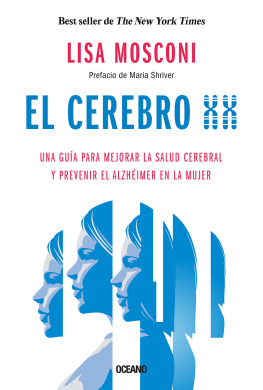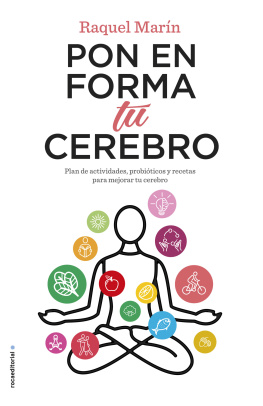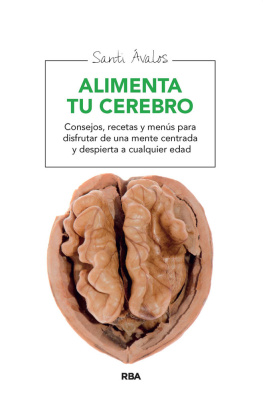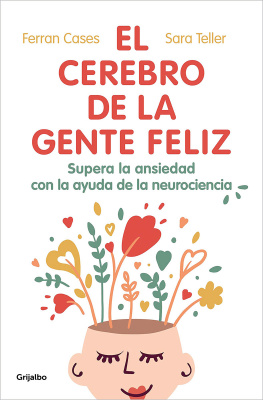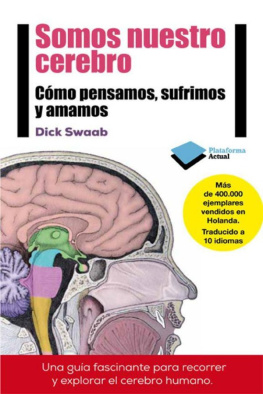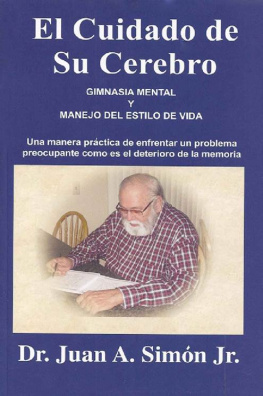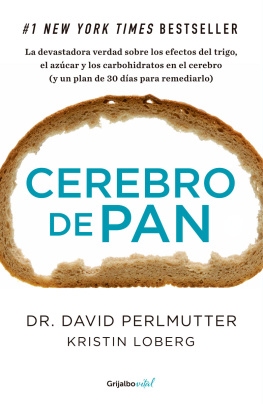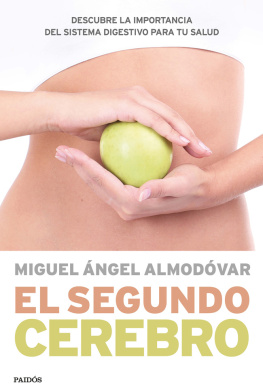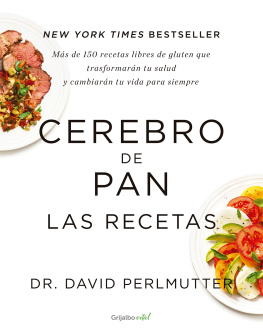Bibliografía
Referencias
Cunnane SC, Harbige LS, Crawford MA. The importance of energy and nutrient supply in human brain evolution. Nutr Health. 1993;9(3):219-35.
Hawks J, Wang ET, Cochran GM, Harpending HC, Moyzis RK. Recent acceleration of human adaptive evolution. Proceedings of the National Academy of Sciences. 2007;104(52):20753-8.
Bianchi VE, Herrera PF, Laura R. Effect of nutrition on neurodegenerative diseases. A systematic review. Nutr Neurosci. 2021;24(10):810-34.
Stevens J. The marathon monks of Mount Hiei. Brattebloro, VT: Editorial Echo Point Books & Media; 2013.
Popkin BM, D’Anci KE, Rosenberg IH. Water, hydration, and health. Nutri Rev. 2010;68(8):439-58.
Wilson MM, Morley J. Impaired cognitive function and mental performance in mild dehydration. Eur J Clin Nutr. 2003;57:S24-S29. https://doi.org/10.1038/sj.ejcn.1601898.
Neelakantan N, Seah JYH, van Dam RM. The effect of coconut oil consumption on cardiovascular risk factors: A systematic review and meta-analysis of clinical trials. Circulation. 2020;141(10):803-14.
Rahim NS, Lim SM, Mani V, Abdul Majeed AB, Ramasamy K. Enhanced memory in Wistar rats by virgin coconut oil is associated with increased antioxidative, cholinergic activities and reduced oxidative stress. Pharmac Biol. 2017;55(1):825-32.
Morris MC, Evans DA, Bienias JL, Tangney CC, Bennett DA, Aggarwal N, et al. Dietary fats and the risk of incident Alzheimer disease. Arch Neurol. 2003;60(2):194.
Thomas J, Thomas CJ, Radcliffe J, Itsiopoulos C. Omega-3 fatty acids in early prevention of inflammatory neurodegenerative disease: A focus on Alzheimer’s Disease. BioMed Res Int. 2015;2015:1-13.
Messamore E, Almeida DM, Jandacek RJ, McNamara RK. Polyunsaturated fatty acids and recurrent mood disorders: Phenomenology, mechanisms, and clinical application. Progress in Lipid Research. 2017;66:1-13.
Chiu C-C, Su K-P, Cheng T-C, Liu H-C, Chang C-J, Dewey ME, et al. The effects of omega-3 fatty acids monotherapy in Alzheimer’s disease and mild cognitive impairment: A preliminary randomized double-blind placebo-controlled study. Progress in Neuro-Psychopharmacol Biol Psych. 2008;32(6):1538-44.
Suzuki E, Yagi G, Nakaki T, Kanba S, Asai M. Elevated plasma nitrate levels in depressive states. J Affect Disord. 2001;63(1-3):221-4.
Cipe G, Idiz UO, Firat D, Bektasoglu H. Relationship between intestinal microbiota and colorectal cancer. WJGO. 2015;7(10):233.
Busby E, Bold J, Fellows L, Rostami K. Mood disorders and gluten: It’s not all in your mind! A Systematic review with meta-analysis. Nutrients. 2018;10(11):1708.
Messina M. Soybean isoflavone exposure does not have feminizing effects on men: a critical examination of the clinical evidence. Fertility Sterility. 2010;93(7):2095-104.
Chen M, Rao Y, Zheng Y, Wei S, Li Y, Guo T, et al. Association between soy isoflavone intake and breast cancer risk for pre- and post-menopausal women: A meta-analysis of epidemiological studies. PLoS ONE. 2014;9(2):e89288.
Evans D. The sprout book: Tap into the power of the planet’s most nutritious food. Nueva York: St. Martin’s Essentials; 2020.
Tillisch K, Labus J, Kilpatrick L, Jiang Z, Stains J, Ebrat B, et al. Consumption of fermented milk product with probiotic modulates brain activity. Gastroenterology. 2013;144(7):1394-1401.e4.
Freedman R, Ross RG. Prenatal choline and the development of schizophrenia. Shanghai Arch Psychiatry. 2015;27(2):13.
Bjelland I, Tell GS, Vollset SE, Konstantinova S, Ueland PM. Choline in anxiety and depression: the Hordaland Health Study. Am J Clin Nutri. 2009;90(4):1056-60.
Biswas S, Giri S. Importance of choline as essential nutrient and its role in prevention of various toxicities. Prague Med Rep. 2015;116(1):5-15.
Dawson M. The Importance of Vitamin A in Nutrition. CPD. 2000;6(3):311-25.
Nair R, Maseeh A. Vitamin D: The sunshine vitamin. J Pharmacol Pharmacotherapeutics. 2012;3(2):118-26. https://doi.org/10.4103/0976-500X.95506.
Rai SN, Singh P, Steinbusch HWM, Vamanu E, Ashraf G, Singh MP. The role of vitamins in neurodegenerative disease: An Update. Biomedicines. 2021;9(10):1284.
de Baaij JHF, Hoenderop JGJ, Bindels RJM. Magnesium in man: Implications for health and disease. Physiological Rev. 2015;95(1):1-46.
Effatpanah M, Rezaei M, Effatpanah H, Effatpanah Z, Varkaneh HK, Mousavi SM, et al. Magnesium status and attention deficit hyperactivity disorder (ADHD): A meta-analysis. Psychiatry Research. 2019;274:228-34.
Colpo E, Dalton D.A. Vilanova C, Reetz LGB, Duarte MMMF, Farias ILG, Meinerz DF, et al. Brazilian nut consumption by healthy volunteers improves inflammatory parameters. Nutrition. 2014;30(4):459-65.
Khaliq H, Juming Z, Ke-Mei P. The physiological role of boron on health. Biol Trace Elem Res. 2018;186(1):31-51.
Pontzer H. Burn: The misunderstood science of metabolism. S.l.: Allen Lane; 2021.
Westover AN, Marangell LB. A cross-national relationship between sugar consumption and major depression? Depress Anxiety. 2002;16(3):118-20.
Roberts AL, Agnew-Blais JC, Spiegelman D, Kubzansky LD, Mason SM, Galea S, et al. Posttraumatic stress disorder and incidence of type 2 diabetes mellitus in a sample of women: A 22-year longitudinal study. JAMA Psychiatry. 2015;72(3):203.
Green E, Murphy C. Altered processing of sweet taste in the brain of diet soda drinkers. Physiology & Behavior. 2012;107(4):560-7.
Whitehouse CR, Boullata J, McCauley LA. The potential toxicity of artificial sweeteners. AAOHN Journal. 2008;56(6):9.
Kraal AZ, Arvanitis NR, Jaeger AP, Ellingrod VL. Could dietary glutamate play a role in psychiatric distress? Neuropsychobiology. 2020;79(1):13-9.
Eskelinen MH, Kivipelto M. Caffeine as a protective factor in dementia and Alzheimer’s Disease. JAD. 2010;20(s1):S167-74.
Chiva-Blanch G, Badimon L. Benefits and risks of moderate alcohol consumption on cardiovascular disease: Current findings and controversies. Nutrients. 2019;12(1):108.
George WH. Alcohol and sexual health behavior: what we know and how we know it. J Sex Res. 2019;56:409.
Hewlings S, Kalman D. Curcumin: A review of its effects on human health. Foods. 2017;6(10):92.
Ramaholimihaso T, Bouazzaoui F, Kaladjian A. Curcumin in depression: Potential mechanisms of action and current evidence—A narrative review. Front Psychiatry. 2020;11:572533.
Hausenblas HA, Saha D, Dubyak PJ, Anton SD. Saffron (Crocus sativus L.) and major depressive disorder: a meta-analysis of randomized clinical trials. J Integrat Med. 2013;11(6):377-83.
Moss M, Oliver L. Plasma 1,8-cineole correlates with cognitive performance following exposure to rosemary essential oil aroma. Therapeutic Advances in Psychopharmacology. 2012;2(3):103-13.
Yimer EM, Tuem KB, Karim A, Ur-Rehman N, Anwar F. Nigella sativa L. (Black Cumin): A promising natural remedy for wide range of illnesses. Evidence-Based Complementary and Alternative Medicine. 2019;2019:1-16.
Gupta. Chamomile: A herbal medicine of the past with a bright future (Review). Mol Med Rep [Internet]. 2010 [citado: 2021 dic. 1];3(6). Disponible en: http://www.spandidos-publications.com/mmr/3/6/895.
Donelli D, Antonelli M, Bellinazzi C, Gensini GF, Firenzuoli F. Effects of lavender on anxiety: A systematic review and meta-analysis. Phytomedicine. 2019;65:153099. doi: 10.1016/j.phymed.2019.153099.
Shams J, Gudarzi SSP, Norouzi A-R, Ghorbani B, Habibi LK, Yasami M-T. The efficacy and safety of add-on ginko TD (Ginkgo Biloba) Treatment for PTSD: Results of a 12-Week Double-Blind Placebo-Controlled Study. Iranian J Psychiatry. 2007;7.
Zeng G, Zhang Z, Lu L, Xiao D, Zong S, He J. Protective Effects of Ginger Root Extract on Alzheimer Disease-Induced Behavioral Dysfunction in Rats. Rejuvenation Research. 2013;16(2):124-33.

